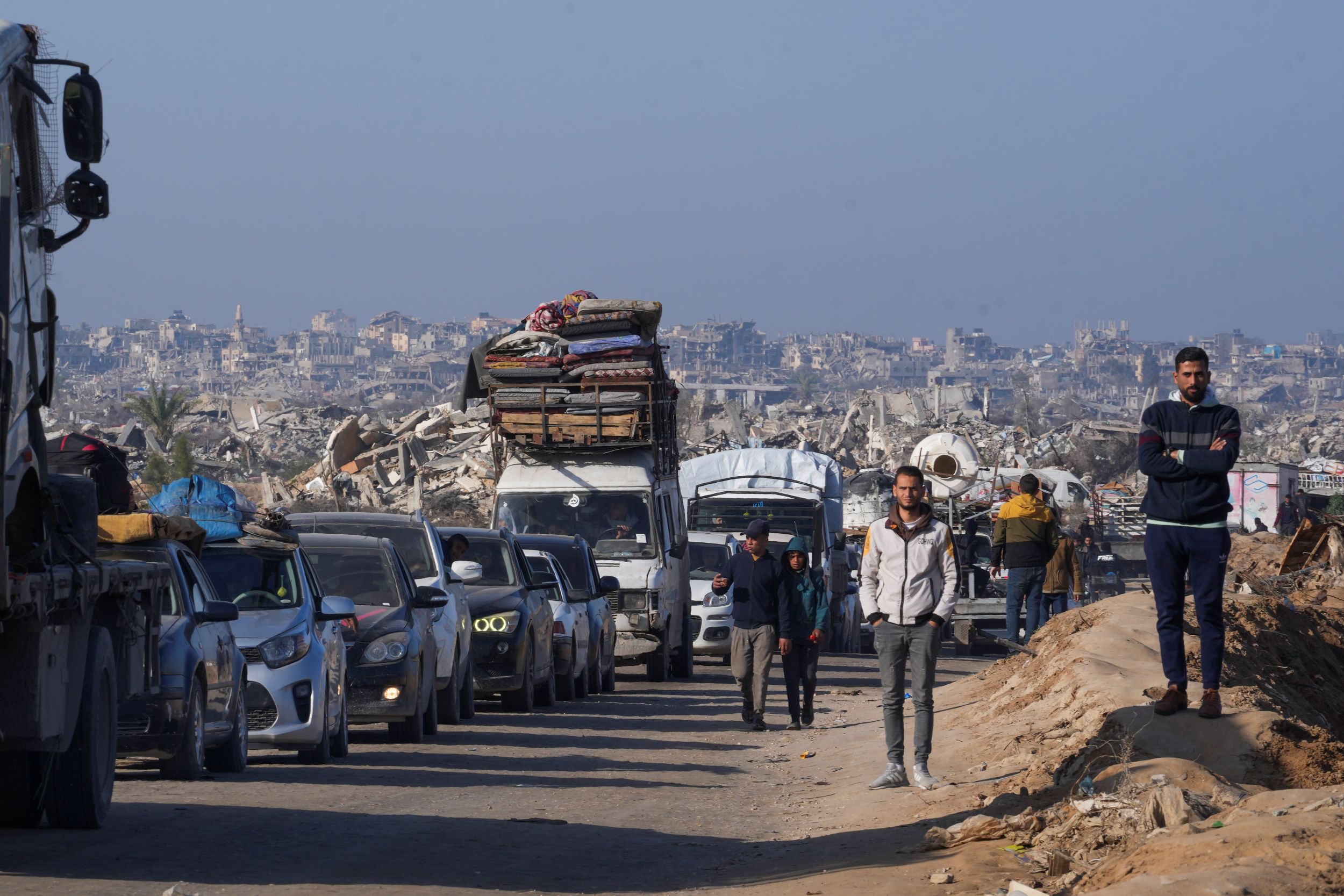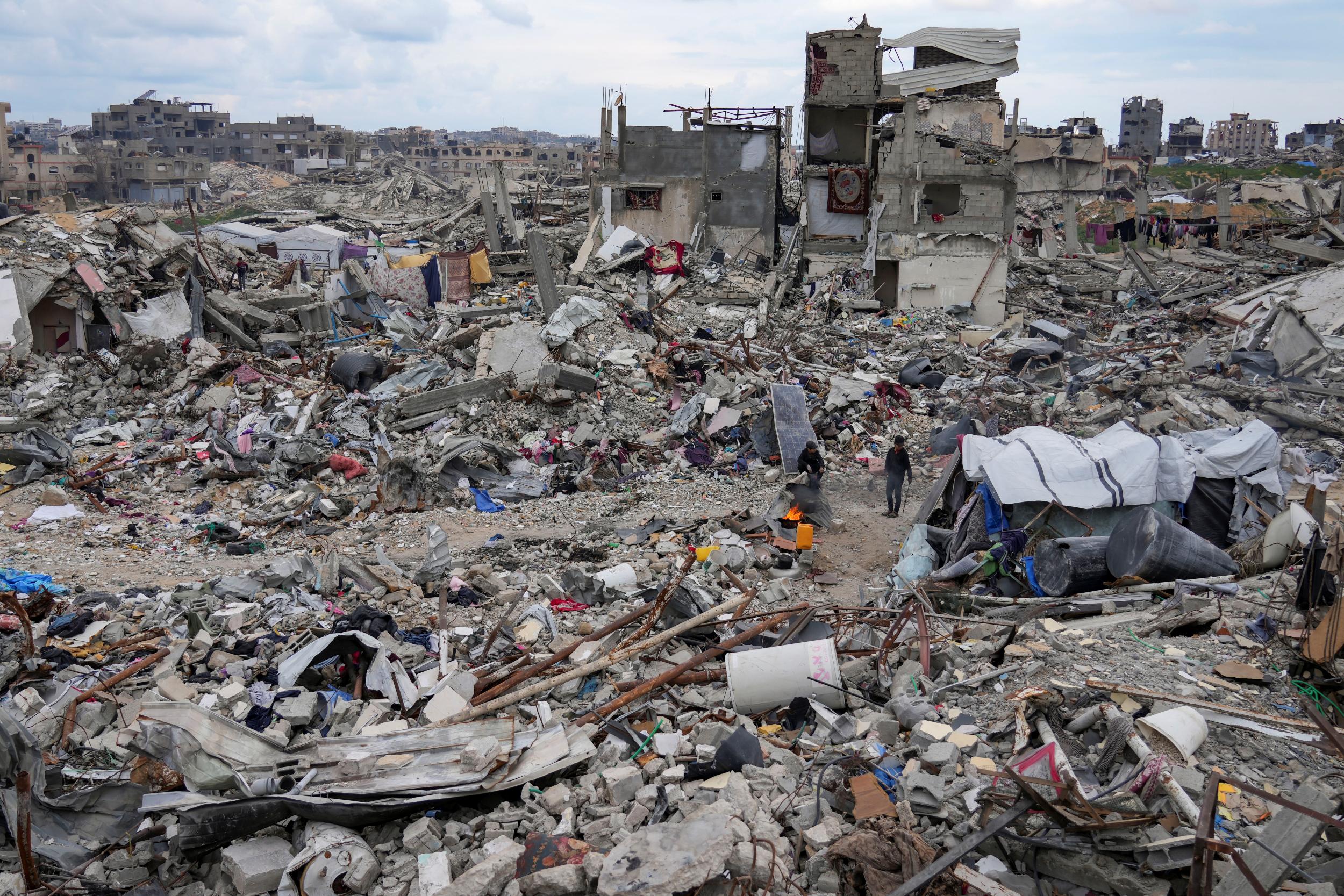
RIYADH/HONG KONG – Before its scheduled summit soon, the Arab League reiterated its strong opposition to the displacement of Palestinians whether from their land or within it, stressing that Gaza can be rebuilt without forcing its residents to leave. But continued Israeli military operations in the occupied West Bank and words for more attacks may hinder the next round of peace talks.
During a meeting in Amman, Jordan on Sunday, Arab League Secretary-General Ahmed Aboul Gheit and Jordan's Minister of Foreign Affairs Ayman Safadi stressed that Gaza can be rebuilt without displacing its residents, according to a statement posted by the Ministry of Foreign Affairs of Jordan.
Aboul Gheit and Safadi underscored that the establishment of an independent, sovereign Palestinian state along the 1967 borders, with East Jerusalem as its capital and based on the two-state solution, is the only path to achieving security, stability, and a just and comprehensive peace in the region, according to the statement.
They emphasized the importance of reinforcing the ceasefire in Gaza and ensuring the effective and sustainable delivery of humanitarian aid to the region. They also discussed ways to enhance joint Arab action, reviewed the latest regional developments, and talked about preparations for the emergency Arab summit scheduled for early next month.
Gokhan Batu, an analyst on Israel studies at the Center for Middle Eastern Studies in Turkiye, told China Daily that the Arab League and Jordan's statements appear to be aligned with their historical mission and position.
Batu added that these developments have created significant pressure on the administrations of the Arab League states, including Jordan. Due to its demographic structure, Jordan perceives this situation as a threat to its domestic stability, Batu analyzed.
Prime Minister Benjamin Netanyahu warned on Sunday that Israel is “ready to return at any moment to intensive combat” in Gaza, telling cadets graduating from a military officers’ course that “the operational plans are ready.”

The Israeli military sent tanks into the occupied West Bank on Sunday for the first time in more than two decades, with the Israeli government ordering forces to prepare for an “extended stay”, according to the report of Al Jazeera.
Talking about Israeli attacks, Batu said: “Israel’s actions can be interpreted through three key considerations: First, Israel sees opportunities in this chaotic period. The sensitivity of the ceasefire in Gaza provides a window for its operations in the West Bank. Second, removing these groups presents an opportunity for Israel to expand settlements northward. Finally, Israel aims to strengthen its deterrence through these operations.”
At this stage, it can be argued that maintaining the ceasefire is becoming increasingly difficult, Batu summarized. However, it is challenging to establish a direct connection between this and the situation in the West Bank, Batu added.
Safadi and Aboul Gheit also stressed the necessity of preventing further deterioration in the occupied West Bank and called for an end to Israel's illegal measures that risk escalating tensions.
Arab countries are also planning a summit soon to weigh the crisis. Earlier, Saudi Arabia has been hosting leaders of some neighbors prior to its Founding Day on Feb 22, after successfully hosting Russian and US top diplomats on the Ukraine crisis.
Saudi Arabia’s role as a mediator and peacemaker on a global stage drew attention at the Saudi Media Forum last week where experts reiterated the Arab powerhouse’s unwavering stance on achieving a two-state solution seen as a way to end the decades-long Israeli-Palestinian conflict.
Abdulaziz Allughaysim, lecturer of King Faisal University in Saudi Arabia, talking of Saudi efforts in hosting talks on Ukraine, told China Daily: "Riyadh is the house for peace of the world."
Jameel Al-Theyabi, editor-in-chief of Saudi newspaper Okaz noted that before, people would talk about how Saudi did not play a role in the political world.
“Today, we are able to see it take part (and) be part of a solution for crises in the world. We have a vision today and everybody is talking about it all over the world. People are talking about dynamics and exchanges in the region,” said Al-Theyabi.
Political analyst and writer Jasser AlJasser credited Saudi Arabia’s increasing influence to Crown Prince and Prime Minister Mohammed bin Salman’s leadership, which introduced Vision 2030 as part of the reason.
He said the Kingdom was a “conservative country with a lot of patience” before it turned into a global leader. AlJasser had also praised Saudi Foreign Minister Prince Faisal bin Farhan, for being a key figure in Saudi’s diplomatic progress, stabilizing the region, with a focus on Syria and the ongoing situation in Gaza.
Journalist and Writer Mishary Al-Dhaidi, said Saudi has an “ethnical decision not to involve in wars” both in the past and present.
“Saudi is co-founder of the Arab League so the kingdom seeks to build healthy relationships and ties with the Arab countries,” said Al-Dhaidi. “Saudi principles and policies are based on security, stability and serving the Arab interests with strictness and steadfastness.”


